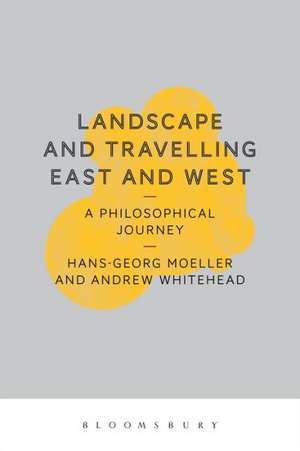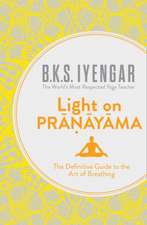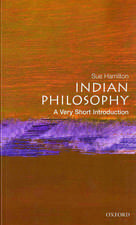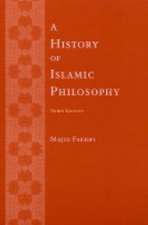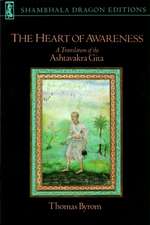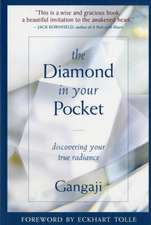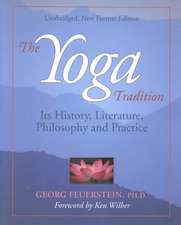Landscape and Travelling East and West: A Philosophical Journey
Editat de Professor Hans-Georg Moeller, Dr. Andrew K. Whiteheaden Limba Engleză Hardback – 15 ian 2014
| Toate formatele și edițiile | Preț | Express |
|---|---|---|
| Paperback (1) | 257.50 lei 6-8 săpt. | |
| Bloomsbury Publishing – 29 iul 2015 | 257.50 lei 6-8 săpt. | |
| Hardback (1) | 772.98 lei 6-8 săpt. | |
| Bloomsbury Publishing – 15 ian 2014 | 772.98 lei 6-8 săpt. |
Preț: 772.98 lei
Preț vechi: 1112.45 lei
-31% Nou
Puncte Express: 1159
Preț estimativ în valută:
147.93€ • 153.87$ • 122.12£
147.93€ • 153.87$ • 122.12£
Carte tipărită la comandă
Livrare economică 15-29 aprilie
Preluare comenzi: 021 569.72.76
Specificații
ISBN-13: 9781472513069
ISBN-10: 1472513061
Pagini: 256
Dimensiuni: 156 x 234 x 20 mm
Greutate: 0.48 kg
Ediția:New.
Editura: Bloomsbury Publishing
Colecția Bloomsbury Academic
Locul publicării:London, United Kingdom
ISBN-10: 1472513061
Pagini: 256
Dimensiuni: 156 x 234 x 20 mm
Greutate: 0.48 kg
Ediția:New.
Editura: Bloomsbury Publishing
Colecția Bloomsbury Academic
Locul publicării:London, United Kingdom
Caracteristici
A unique contribution to current debates about space, belonging and the environment informed by non-Western perspectives
Notă biografică
Hans-Georg Moeller is Senior Lecturer in the Department of Philosophy at University College Cork, Ireland.Andrew K. Whitehead is the Manager of the Irish Institute of Japanese Studies in the Department of Philosophy at University College Cork, the Executive Director of the Académie du Midi Institute of Philosophy, and has recently been appointed Assistant Professor of Philosophy in the Department of History and Philosophy at Kennesaw State University, USA.
Cuprins
Notes on ContributorsIntroduction (Hans-Georg Moeller)Part I: Strolls and Scrolls 1. Landscape and Travelling in Early Chinese Thought (Ouyang Xiao)2. Landscape as an Aesthetic Person: On the Conceptual World of German Romanticism (Rolf Trauzettel)3. The Landscape of Yinyang: Philosophy and Shanshui Painting (Robin Wang)4. Landscape, Travel, and a Zhuangist Reply to Nagel's Cosmic Question (Chris Fraser)Part II: Buddhist Journeys 5. Hoben as Pedagogical Landscape (Andrew Whitehead)6. On the Shikoku Pilgrimage (John Harding) 7. Travelling through Tibet: Images and Mirages (Snjezana Zoric) 8. A Walk Through Some Zen Landscapes of the Heart (John Maraldo) Part III: Contemporary Paths 9. Journeying and Locality in Migration (Andrea Martinez) 10. Wandering and/or Being at Home: Zhuangzi and Heidegger (Franklin Perkins) 11. On the Way - Foolish Notes of an Old Nomadic Poet-Philosopher (Günter Wohlfart) 12. Transcultural Reflections on the Limits of Travel (Mario Wenning) Part IV: Landscape and Travelling as Philosophical Metaphors 13. The Way of Transmission in Confucianism (Roger Ames and Henry Rosemont) 14. A Daoist Response to Ames and Rosemont (Paul D'Ambrosio) 15. The Moral Landscape in the Philosophy of Tang Junyi (Ady Van den Stock) 16. Travelling with Laozi and Plato (May Sim) Index
Recenzii
An inspiring collection of diverse and fascinating journeys through time, space and cultures, this book is an ideal companion for wondering and wandering philosophers, East-West comparativists and intellectual flâneurs of any kind.
This well-crafted unusual collection of essays devoted to philosophical reflections on landscape and travel, real and imaginary, ranges comparatively across East and West, from Laozi and Zhuangzi, Confucius and Mencius, Buddhist sutras, and Basho to Plato, Descartes, Hegel, Kant, Heidegger, and Caspar David Friedrich, from physical location and movement in time and space to concepts of 'home' and sense of community, from journey as metaphor for spiritual quest to issues of migration, exile, personal and national identity, and relations between the human and the natural environments. The essays are marked by much original thought, sophisticated analysis, and the extensive and insightful use of primary sources, and their collective effect expands our perspectives and sharpens the focus we bring to bear on cultural affinities that have long been obscured by uninformed attention to superficial differences. As such, this volume represents cross-cultural and inter-disciplinary studies at their best.
Although more people in the world are travelling farther and more often than ever before-not least philosophers to conferences-this activity has been neglected as a topic for philosophical reflection. And although landscape has long been such a topic in East-Asian traditions, it too has been largely ignored in Western philosophy. This collection of essays by a range of scholars, from eminent experts to promising younger thinkers, goes a long way toward filling in the gaps in admirable fashion.
This well-crafted unusual collection of essays devoted to philosophical reflections on landscape and travel, real and imaginary, ranges comparatively across East and West, from Laozi and Zhuangzi, Confucius and Mencius, Buddhist sutras, and Basho to Plato, Descartes, Hegel, Kant, Heidegger, and Caspar David Friedrich, from physical location and movement in time and space to concepts of 'home' and sense of community, from journey as metaphor for spiritual quest to issues of migration, exile, personal and national identity, and relations between the human and the natural environments. The essays are marked by much original thought, sophisticated analysis, and the extensive and insightful use of primary sources, and their collective effect expands our perspectives and sharpens the focus we bring to bear on cultural affinities that have long been obscured by uninformed attention to superficial differences. As such, this volume represents cross-cultural and inter-disciplinary studies at their best.
Although more people in the world are travelling farther and more often than ever before-not least philosophers to conferences-this activity has been neglected as a topic for philosophical reflection. And although landscape has long been such a topic in East-Asian traditions, it too has been largely ignored in Western philosophy. This collection of essays by a range of scholars, from eminent experts to promising younger thinkers, goes a long way toward filling in the gaps in admirable fashion.
